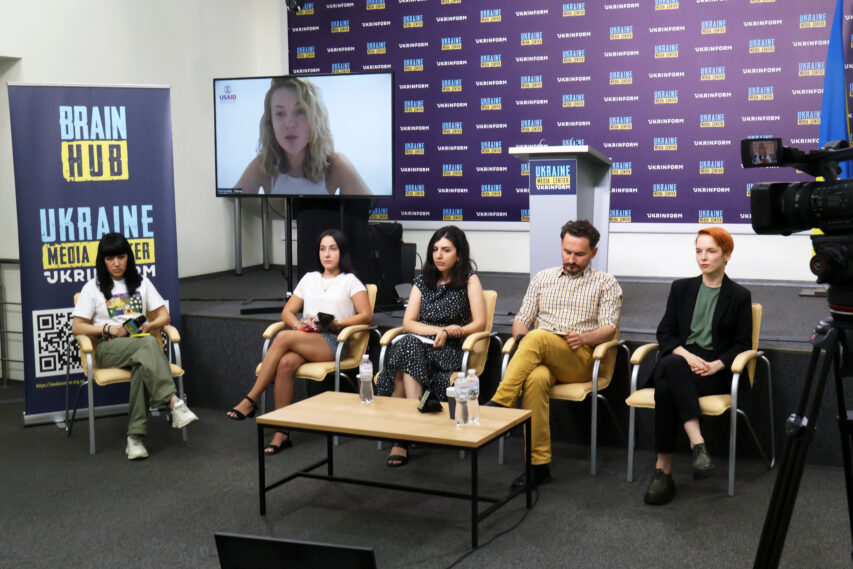
Almost 1,900 disinformation cases – fact checkers show how russians discredit Ukrainian health care system
VoxCheck fact checkers together with the USAID Health Reform Support Project documented almost 1,900 cases of disinformation connected to the health care system in the information space of Ukraine, russia and Belarus from June 2022 to June 2023. These include news on various platforms that in one way or another called into question and discredited the health care system or endangered the health and lives of Ukrainians.
Svitlana Slipchenko, VoxCheck Project Manager, talked about this during the event at the main discussion platform of the country BrainHub at Media Center Ukraine – Ukrinform.
“We grouped all these cases into 143 fake stories that we currently have. These are unique topics that the russian sources used in their manipulations in order to undermine the Ukrainians’ access to the health care system. And all this can be summarized in 15 main topics,” she explained and emphasized that over the year under observation the top topics were, in particular, those related to chemical threats to Ukrainians and the U.S. biolaboratories.
“There is, of course, the topic of the humanitarian, food crisis and the disaster, and here we also have the topic of grain, which is relevant even now. Many topics are related to nuclear threats, including the provocations at the Zaporizhia NPP. There are some on the militarization of hospitals, the fact that the Armed Forces of Ukraine allegedly capture hospitals, destroy them, etc. And, of course, topics related to possible outbreaks of infectious diseases. And the discrediting of the healthcare system as a whole is also related to the activities of doctors, hospitals, and the health care reform,” she added.
Svitlana Slipchenko noted that russian and Belarusian media, social networks – mostly Telegram and Facebook – often become sources of disinformation on the health of Ukrainians. According to her, these are the main channels through which russia spreads disinformation about the health care system.
“Mostly, it is the russian and sometimes Belarusian media that are the starting point, from there, mainly through social networks, in particular Telegram, fake news begin to migrate to the Ukrainian information space as well. It is quite rare that Ukrainian media can actually pick up a russian fake story. But there are pro-russian channels, those that supposedly talk about the Ukrainian context, but in fact repeat narratives from russian channels almost verbatim – they are the ones who are the biggest spreaders of disinformation, in particular about the healthcare system,” she explained.
At the same time, Svitlana Slipchenko noted that fake stories also spread in both Facebook and Instagram. She emphasized that, in addition to russian sources, numerous anti-scientific articles and topics related to folk medicine also undermine the topic of the health of Ukrainians and discredit the health care system as well.
All fake news, propaganda manipulations about the Ukrainian health care system and debunking reports are collected in the online database “Detox from Propaganda,” which is available to all Ukrainians.
BrainHub is the country’s main discussion platform created by the Media Center Ukraine – Ukrinform. It brings together experts from the state and civil society sectors. BrainHub hosts intellectual discussions around the issues of the post-war reconstruction of Ukraine. It’s the birthplace of the best ideas that will become the foundation for the road map of Ukraine’s reconstruction in all sectors: economy, infrastructure, education, agriculture, security, digital, etc.
Read more: https://mediacenter.org.ua/news
 Back
Back 